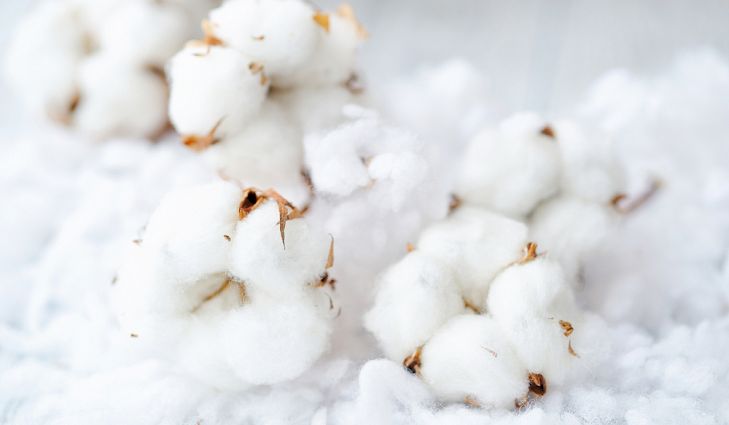Sustainable Fashion
It’s an era of Sustainable fashion where we all have open choice to get into ethical fashion before its get too late for our better living and long life. To make environment friendly products, it all starts from influence supplier and end up with retail customer.
Being a supplier to society, Tusha Textiles make sure to look after every avenues for not affecting any God Particles and hence after accepting guidelines we have started following the law of sustainability.
Our products since debut is sustainable because of fiber dyed characteristics in nature. Looking after the scarcity of water in globe, our products are less water consumable and helping us to support Ecological system precisely. Fiber dyed products need limited water upto 15 lt/kg to finish the fabric where as ordinary piece dyed fabric do need 35 ltr/kg water. Further garments made up from our products require limited wash.
Tusha is located at Western India where Water hardness is just 80 ppm compare to northern India where it stand at 350 PPM. Softness in water helping us to limit the energy consumption.
Apart from above we have further added new features like recycle Polyester / BCI Cotton/Sustainable Viscose into our fabric with PFC Free finishes.
Recycle Polyester
Polyester is Man-made fiber mixture from Petro chemical products called as polymerization. Production of polyester fabric involves significant quantities of chemicals, raw materials and by-products that are toxic and can pollute water and air and cause health issues. Plastic is non-biodegradable product which may not get dissolve upto 20 to 200 years and hence option of adopting used PET bottle enabling us to do a bit for Eco system.
Recycled polyester is almost the same as virgin polyester in terms of quality, but its production requires 59 percent less energy compared to virgin polyester. Further PET consume less energy compare to Virgin Polyester and thus reduce landfill, Reduce Soil contamination followed by Air and water. Using of much Recycle Polyester fiber will be helping to avoid dependency on crude oil.
Tusha Textiles is closely working with spinner for Recycle Polyester fiber under the bracket of GRS-Control union. Tusha if offerings Eco Qualities successfully and supplying the quality product at competitive price with our closed loop followed by control union certified Invoices.
Our one meter 100% Recycle Poly Blended fabric is made up from 8 PET bottle (200gms).

Better Cotton
Cotton is a natural renewable material with many advantages, but also with number of concerns. According to WWF research, it takes an average of 8,500 litres of water to grow one kilo of cotton lint – enough to make one pair of jeans. It is a renewable resource, but it comes with a number of challenges, including the use of chemicals and water intensive processes. Cotton is an enormously important commodity throughout the world. However, many farmers in developing countries receive a low price for their produce, or find it difficult to compete with developed countries.
According to Tusha, The use of virgin, traditional Cotton is harmful to the environment, the workers and communities. Traditional cotton uses a lot of water and harmful pesticides and chemicals which again threat to environment in various manner.
Organic cotton working alongside the Better Cotton Initiative is the most ethical and sustainable option if this fabric is to be used. Organic cotton is better for the environment, the workers and the community. It may hold a higher price tag to consumers but customers are made aware of the true impacts of traditional Cotton, the higher nominal price really isn’t an issue. We are transforming all our Cotton Blended qualities into Sustainable with minute upcharge.
TUSHA TEXTILES enrolled for the BCI membership and likely to get certify soon in couple of months. The points of BCI will be passed on to end customers to form the chain.

Eco Viscose
Viscose is a type of regenerated cellulose fibre (rayon). It is usually made from plants or wood pulp, using the viscose process/method (cellulose xanthate).
The viscose process dissolves pulp with certain chemicals or solvents (such as aqueous sodium hydroxide in the presence of carbon disulfide).
This viscous solution is called viscose. The cellulose solution is used to spin the viscose rayon fiber, which may also be called viscose.
Our sourced Viscose from Birla are produced from dissolving pulp in a multi-stage process using sustainably produced wood – and manufactured as environment friendly as possible with minimum wastewater and emissions burden.
Characteristics of Lenzing Viscose and Birla Viscose are same and meeting all the requirement of important Certification like Oeko Tex, FSC, PEFC , ISO and others.

Sustainable Finishes
We have a contractual agreement with Mandhana Industries for Fabric processing. Mandhana do follow Zero Liquid Discharge (ZLD) treatment process with the goal of removing all the liquid waste from a system.
There focus on ZLD is to economically reduce wastewater and produce clean water that is suitable for reuse, thus it is helping to save money and being beneficial to the environment. ZLD systems employ advanced wastewater treatment technologies to purify and recycle virtually all of the wastewater produced.
Further while pouring the Chemour/Dupont Brand chemicals on fabric, Tusha Textiles make sure that Chemicals are PFC free and follow the customer’s requirement of sustainable.


